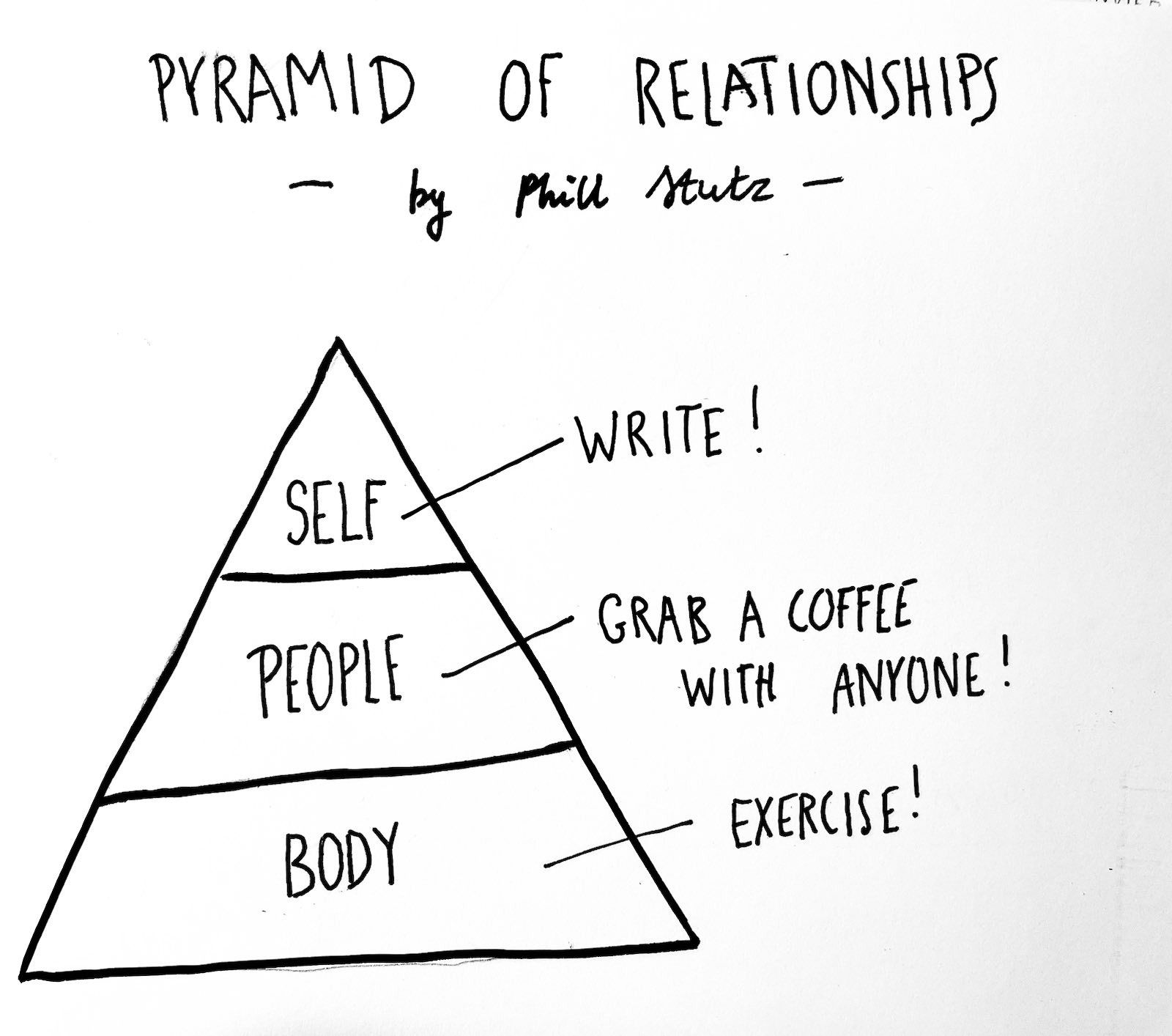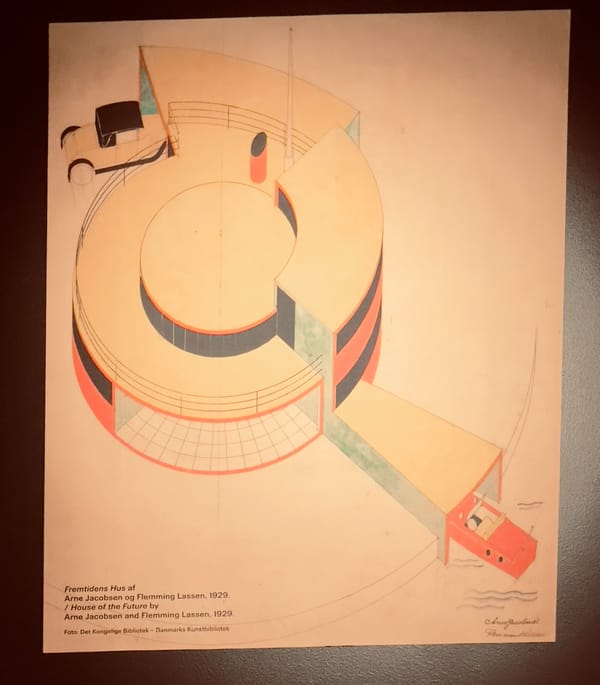Building Systems Beckons Freedom
How building simple systems transforms your stress into success.

It’s 7 a.m., and I am already in a frenzy. I can’t shake the feeling that I’ve forgotten something important. I carry this unease with me to work, where I check my calendar. It shows I’m up-to-date with my tasks. Still, the uneasy feeling in my stomach persists, so I go and grab a coffee. Then it hits me:
The freaking taxes.
A rush of adrenaline sends every cell in my body into panic mode. This lasts for about five seconds, until I realize that I still have months to turn in my tax declaration. Still, it’s hard for me to let go of the agitation. Being in states like this is draining.
Much of my anxiety stems from a lack of organization. I live in constant fear that I’ve forgotten something. All. The. Time.
Ironically, if you ask most of my friends, they would probably tell you that I’m well-organized. I might even be better organized than average, but it’s still not good enough for me. Everybody has their own threshold for chaos. I like to navigate chaos, not create it. That’s why I’m convinced you can ease your mind by creating order.
And you create order by building systems.
James Clear said it best:
You do not rise to the level of your goals. You fall to the level of your systems.
As always, if you have any feedback or suggestions, please write to me.
Here is my first rough draft on how to build systems that will help you build wealth, health, and save time.
The Personal Finance System
I have five accounts, and each one serves a specific purpose:
- A checking account for daily expenses
- A savings account
- An investment account where I buy financial products (mostly ETFs)
- An account where I save up to pay my taxes
- A pension savings account for tax reduction purposes
In my opinion, this setup is more than enough to take care of 80 percent of your finances. However, I also understand that my situation might differ significantly from others. I’m 30 years old and don’t have kids. Since my only responsibility is myself, this frees up my resources.
The Personal Health System
Always break it down to the fundamentals. Human health rests on two pillars: physical and mental health. Luckily, both can be improved dramatically if we just focus on the Pareto Principle. So, where are the 20 percent that yield 80 percent of the results? For that, I love to use the tools and framework from the legendary Phil Stutz:

Let’s start with the foundation of the pyramid. Our bodies are the vehicles that carry us through life. Their health determines an enormous amount of our quality of life. Therefore, it seems like a great idea to take care of them.
A healthy man wants a thousand things, a sick man only wants one.
— Confucius
Stutz says that the health of one’s body has three major aspects that must be attended to:
- Sleep
- Diet
- Exercise
From my experience, this is also the correct order.
Here’s what had the biggest impact on my sleep:
- Having a regular sleep schedule
- Sleeping in a cool room
- No caffeine after 12 pm
- Ashwaganda extract
Diet is also pretty straightforward. Check for any food intolerances, and avoid those foods. Only eat non-processed foods. Eat your veggies. Cut back on carbs and try to get them from veggies and fruits. Hit your protein target.
I exercise daily. I don’t know if that’s too much; most of my friends seem to think so. But when I say I exercise every day, don’t imagine me maxing out on my deadlift. Sometimes I only go for a 20-minute jog or a long walk—that’s it.
Relationships are a tough one. I’m an extrovert by nature, so I never had a problem meeting new people. However, since I’m an extrovert, I also crave social interaction more. Now, because humans thrive when they have good relationships, the next part holds true for introverts and extroverts alike: take the initiative. Call people up and ask if they want to grab something to eat or a coffee. If you do this enough times, they will start asking you to meet up as well. For those who don’t reciprocate after you’ve put in effort—do you really want them in your life?
Now for the “Self”—this deserves a blog post on its own. Your Self is the only person you’ll have to live with every single day of your life, so it warrants more attention.
The Time-Saving System
Most people spend their time in two spheres: work and leisure.
When it comes to work-related tasks, I can only give you my opinion on knowledge work. In the age of computers, there’s a simple, highly effective method:
- Write down all your tasks.
- Break these tasks down into steps.
- Think of a system to automate the repetitive, non-creative tasks (I think it was Naval Ravikant who said that every task that doesn’t require creativity should be automated)
Another point that holds true for any kind of worker: if your work is location-specific, don’t underestimate the time you spend commuting. A commute of 30 minutes a day might not sound like much, but let’s do a simple calculation:
- Let’s say you commute from Monday to Friday (five times).
- Each day, you commute from home to work and back, each way taking 30 minutes (1 hour in total).
- You have five weeks of vacation each year and national holidays (about 45 work weeks a year)
45 weeks x 5 commutes a week x 1 hour of commute a day = 225 hours of commute, or about 9.4 days.
In other words, a lot. Try to live as close to your work as possible if you value your time.
Don’t underestimate the power of systems for your leisure time as well.
First and foremost, one of the saddest scenes of modern life is seeing families and friends not talking to each other because they’re fixated on their phones. Here’s the ugly truth: smartphones are one of the most potent drugs ever created (check out how distractions steal your life away). Even if you don’t think you’re addicted to the marvelous piece of technology in your pocket, you probably are. But the smartphone is not the problem per se. It’s the software it stores that you’re addicted to. Saying the smartphone is the problem is like blaming the messenger. It’s an immensely powerful tool if you use software that is useful to you but doesn’t distract you from the one life you have. I’ve tried many things, but these worked for me:
- Delete all the addictive software (social media, games, etc.) from your phone.
- Put your phone into grayscale. The colorful designs make them fun to look at. Not so much if your phone looks like a Zurich winter (if you know, you know).
- Put your phone into Do Not Disturb mode. If you want some callers to get through, you can program that in as well.
- Don’t have your phone at arm’s reach while you want to focus. By simply being in your vicinity it’s a distraction to you.
- Every time you want to automatically grab your phone, quietly tell yourself “no”. Andrew Huberman suggested this in one of his podcasts. Simple brain-rewiring, baby.
Now, this is already going to take care of many problems in your leisure time and free up hours upon hours with your loved ones.
Also, try and build systems around your hobbies. If you like to play the guitar, don’t make it extra hard to pick it up. Put it where you can easily grab it.
The location of your leisure activities plays a pivotal role in how much you get to enjoy them. If you live in Switzerland and love hiking in the mountains, I have good news for you. But if you’re an avid surfer, there might be better spots to make your home if you don’t want to settle for artificial or 20-centimeter waves.
This is only a first glimpse in how you can maxizime your independence from stress and time-sucking chores. If you have any tips of your own, please share them with me, I'd love to hear your thoughts!
Don’t let chaos engulf your life; build systems. They will give you your freedom back.





